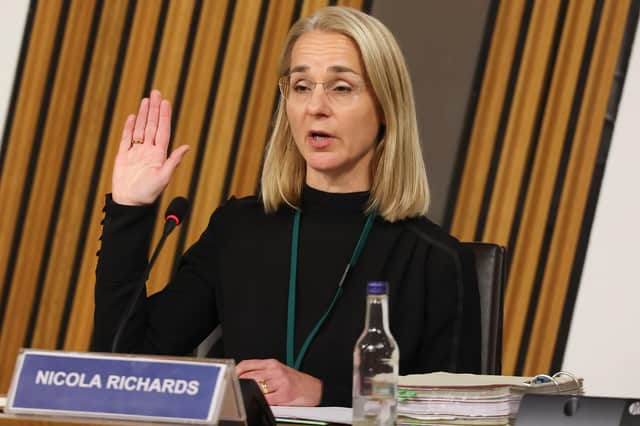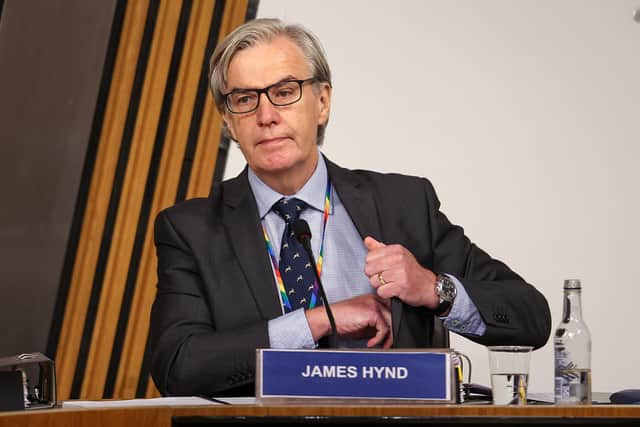Salmond Inquiry: MSPs forced to ask for further emails not disclosed by Scottish Government


MSPs were forced to demand further documents from Scottish Government officials after it emerged correspondence existed about the harassment complaints procedure which had not been passed to the committee.
The inquiry into the handling of historic complaints of harassment involving the former First Minister Alex Salmond heard evidence from two senior civil servants when Scottish Labour MSP Jackie Baillie mentioned emails which had not been disclosed to the committee.
Advertisement
Hide AdAdvertisement
Hide AdThe omission was later described as “completely unacceptable” by the Labour MSP.


The exchange came during an evidence session from David Hynd, the head of cabinet, parliament and governance division, who led the development of the procedure later ruled unlawful by the Court of Session after a challenge by Alex Salmond, leading to a £500,000 bill for the taxpayer.
Ms Baillie, asking whether Mr Hynd had agreed with the policy of having independent civil servants lead any investigation said: “My understanding is that there are further emails from you agreeing with that proposition that the committee don’t have. Did you yourself not suggest indeed three names of people, independent people."
"Oh yes”, replied Mr Hynd.
Ms Baillie said: “The committee doesn’t that unfortunately.”
Mr Hynd added: “They were Scottish Government civil servants, they were not independent third-parties to government. So that was what I was agreeing with.”
The civil servant later committed to providing the committee with the emails.
Nicola Richards, the director of people at the Scottish Government, also gave evidence at the committee and was challenged by Alison Johnstone MSP on whether sending the draft policy to an official who would later become a complainer, was “blurring the lines”.
She asked the civil servant: “Is it your view that the lines were blurred between the two work streams, where you have a policy being drafted being shared with someone who then goes on to be a complainant?”
Advertisement
Hide AdAdvertisement
Hide AdQuestioned about why this had been done, Ms Richards said: “The reasons why we shared that, we were trying to establish, in terms of our learning as an organisation, whether this would have made any difference to them at the time, would it have made it more possible to raise issues about a first minister or former first minister?
“It was done so that if they decided to proceed to formal complaint, they had an awareness of the policy likely to be applied.”
Ms Baillie, reacting after the committee had finished its business for the day, said the evidence “posed more questions than it answered” and said it was “unacceptable” the committee had not been given the full information.
She said: “That the draft policy was shared with two potential complainants and not shared with women’s rights groups or anti-bullying groups is very strange. Indeed the fact that these women were notified of the name of the investigating officer before the policy had been approved and before complaints were made, appears to be against standard procedure.
“In evidence to the Committee, Mr. Hynd who was responsible for developing the policy was adamant that the policy itself was legal, but that the implementation was not, as evidenced by the outcome of the judicial review. He effectively threw the Director of People and his HR colleagues under the bus.
“And yet again the we are faced with a lack of information and admissions that not all emails have been shared with members of the committee.
“The purpose of this committee is to uncover why the Scottish Government’s harassment policies led to an expensive and botched investigation that cost the taxpayer at least £500,000, yet we are blocked at every turn by the government. This is simply unacceptable.”